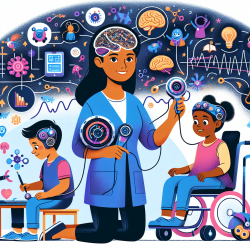The field of mental health care is continuously evolving, with a growing emphasis on integrating human rights-based approaches (HRBAs) into practice. A recent study titled "Establishing Good Practice for Human Rights-Based Approaches to Mental Health Care and Psychosocial Support in Kenya" offers valuable insights into how practitioners can improve their skills by adopting HRBAs. This blog delves into the key outcomes of the research and encourages further exploration to enhance the quality and effectiveness of mental health services.
Understanding Human Rights-Based Approaches
An HRBA to mental health care emphasizes the importance of viewing mental health as a fundamental human right. This approach seeks to eliminate barriers such as discrimination, stigma, and poverty that hinder individuals from accessing necessary mental health services. By adopting this perspective, practitioners can ensure that mental health care is equitable, inclusive, and respectful of individual dignity and autonomy.
Key Principles and Interventions
- Mental Health as a Human Right: Recognize mental health and well-being as fundamental rights. Address societal barriers that violate these rights.
- Dignity and Autonomy: Promote dignity by allowing individuals to participate freely in society and make autonomous decisions regarding their mental health care.
- Access to Information: Ensure individuals are informed about their rights and conditions, enabling them to make informed choices about their care.
- User-Centered Approach: Tailor support to meet individual needs, emphasizing personalized care that respects cultural and social differences.
- Community and Family Support: Foster community-oriented care that integrates family support to enhance mental health outcomes.
- Prevention Focus: Address social determinants of health to prevent mental health issues before they necessitate treatment.
- Accountability: Ensure laws and policies reflect HRBAs and are implemented effectively, holding duty bearers accountable for their commitments.
The Role of Practitioners
Practitioners play a crucial role in implementing HRBAs by advocating for policy changes, educating communities, and fostering environments where individuals feel empowered to advocate for themselves. By engaging with these approaches, practitioners can contribute to more just and equitable mental health systems.
Encouraging Further Research
The study highlights the need for further research to support the implementation of HRBAs in diverse contexts. Practitioners are encouraged to explore additional studies and engage with ongoing research efforts to refine their understanding of HRBAs and adapt them to local needs.
To read the original research paper, please follow this link: Establishing Good Practice for Human Rights-Based Approaches to Mental Health Care and Psychosocial Support in Kenya.










